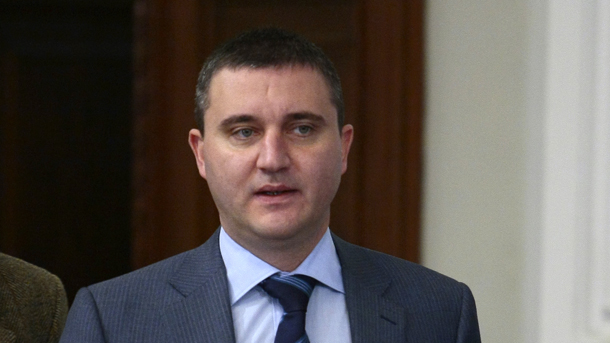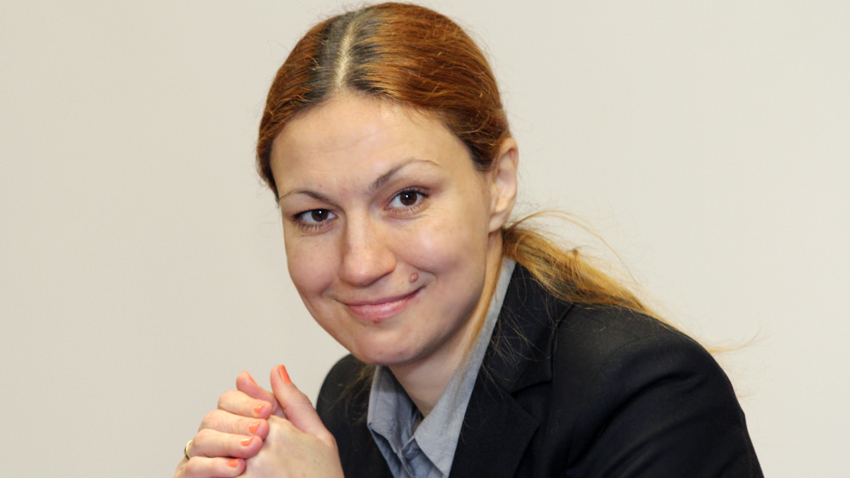“Stability, feasibility, results” – that was how Finance Minister Vladislav Goranov defined the philosophy of the national budget for 2016, adopted at first reading.
 “The 2016 budget is conformed to reality. It is a function of what we create and affords the state ample opportunity to perform its functions: providing social protection to Bulgarian citizens unable to cope by themselves, investing in the human capital, providing for defence and security, spheres in which we have assumed international commitments. It is a budget that is based on facts and the needs of the state in 2016 and, most importantly, guarantees stability against the backdrop of the existing problems that are connected with economic, but also global security,” said Minister Goranov, adding that “the budget’s principal aim is to reduce the deficit and dispel apprehensions that the government debt is growing disproportionately.”
“The 2016 budget is conformed to reality. It is a function of what we create and affords the state ample opportunity to perform its functions: providing social protection to Bulgarian citizens unable to cope by themselves, investing in the human capital, providing for defence and security, spheres in which we have assumed international commitments. It is a budget that is based on facts and the needs of the state in 2016 and, most importantly, guarantees stability against the backdrop of the existing problems that are connected with economic, but also global security,” said Minister Goranov, adding that “the budget’s principal aim is to reduce the deficit and dispel apprehensions that the government debt is growing disproportionately.”
The deficit targeted is BGN 1.8 billion (EUR 900 million). The ceiling of the new debt the country is capable of coping with in 2016 is BGN 5.3 billion (EUR 2.65 million). There is also a budget update for this year.
 “Whereas in 2012 Bulgaria had a budget deficit of a mere 0.6 percent and the country was one of Europe’s good examples,” comments Desislava Nikolova from the Institute for Market Economics, “we now have the fourth highest budget deficit in Europe – around 5.8 percent of the GDP. In the period of most severe crisis, 2009-2012, the budget deficit was BGN 2 billion (EUR 1 billion) below what we have for the 2013-2015 period. The enormous deficits of the past three years are unjustifiable in view of the overall economic situation.”
“Whereas in 2012 Bulgaria had a budget deficit of a mere 0.6 percent and the country was one of Europe’s good examples,” comments Desislava Nikolova from the Institute for Market Economics, “we now have the fourth highest budget deficit in Europe – around 5.8 percent of the GDP. In the period of most severe crisis, 2009-2012, the budget deficit was BGN 2 billion (EUR 1 billion) below what we have for the 2013-2015 period. The enormous deficits of the past three years are unjustifiable in view of the overall economic situation.”
As usual, the Institute for Market Economics drafted an alternative budget. Desislava Nikolova says that the draft targets a zero deficit, but that this can be attained at the cost of deep-going reform.
“Our prime objective is to cut down on wage costs in the budget sphere by 10 percent,” says Desislava Nikolova. “This proposal is nothing new – it was targeted by the government in budget 2015. Unfortunately, the government failed in this endeavor.”
According to the alternative budget, 2016 could end with a zero budget deficit – the cabinet is planning a 2 percent deficit – provided the government carries through deep-going reforms in the “Justice and law enforcement” sector, breaks up the monopoly of the National Health Insurance Fund and streamlines the budgets of the police, the army and the judiciary.
“For the first time this year we dug deeper into the budget of the judiciary, the budget of the Interior Ministry,” Desislava Nikolova goes on to say. “As to the judiciary, we are record-holders with regard to the per capita number of prosecutors and judges. Not to mention the bloated administration, the biggest in Europe. All this spells tremendous inefficiency. We must set about streamlining this resource.”
The Institute for Market Economics proposes dropping some inefficient taxes, such as dividend tax (currently 5 percent), tax on interest rates (currently 8 percent) and inheritance tax, as well as reducing sole proprietors’ taxation down to 10 percent (currently 15 percent). According to Desislava Nikolova if tax breaks are restricted, and more specifically tax benefits for farmers, meal vouchers and preferential VAT in tourism, if one fifth of the income tax revenues are transferred to municipalities, the effect on treasury revenues would be negligible but would boost entrepreneurship and consumption, which on its part would lead to economic growth. The government must drop its plan of hiking retirement insurance contributions, and instead, gradually enhance the role of personal savings and drop the idea of transferring personal savings to the solidarity system. Moreover, a more active administration of public property can be attained by privatizing indebted companies such as Bulgarian Posts Plc., and Bulgarian State Railways.
Institute for Market Economics calculations show that next year, each taxpayer will have to pay BGN 4,875. We have debts amounting to BGN 3,711 which we shall have to pay up in the future.
English version: Milena Daynova
“The main priorities businesses have – membership of the Eurozone and accession to the Schengen area by land – have receded to the background. They are the motors which can boost the economy, but the fact there is no regular government is an obstacle..
Bulgargaz has reported record interest in its tender for the supply of LNG to the Alexandroupolis terminal for January and February 2025. All nineteen bidders met the criteria set by the company and have been approved to participate in the next..
The Russian state oil company Lukoil has plans to sell its Bulgarian refinery Neftochim based in Burgas on the Black Sea Coast. It is the largest in the Balkans, writes the Financial Times . The deal is expected to be announced by the end of..

+359 2 9336 661
